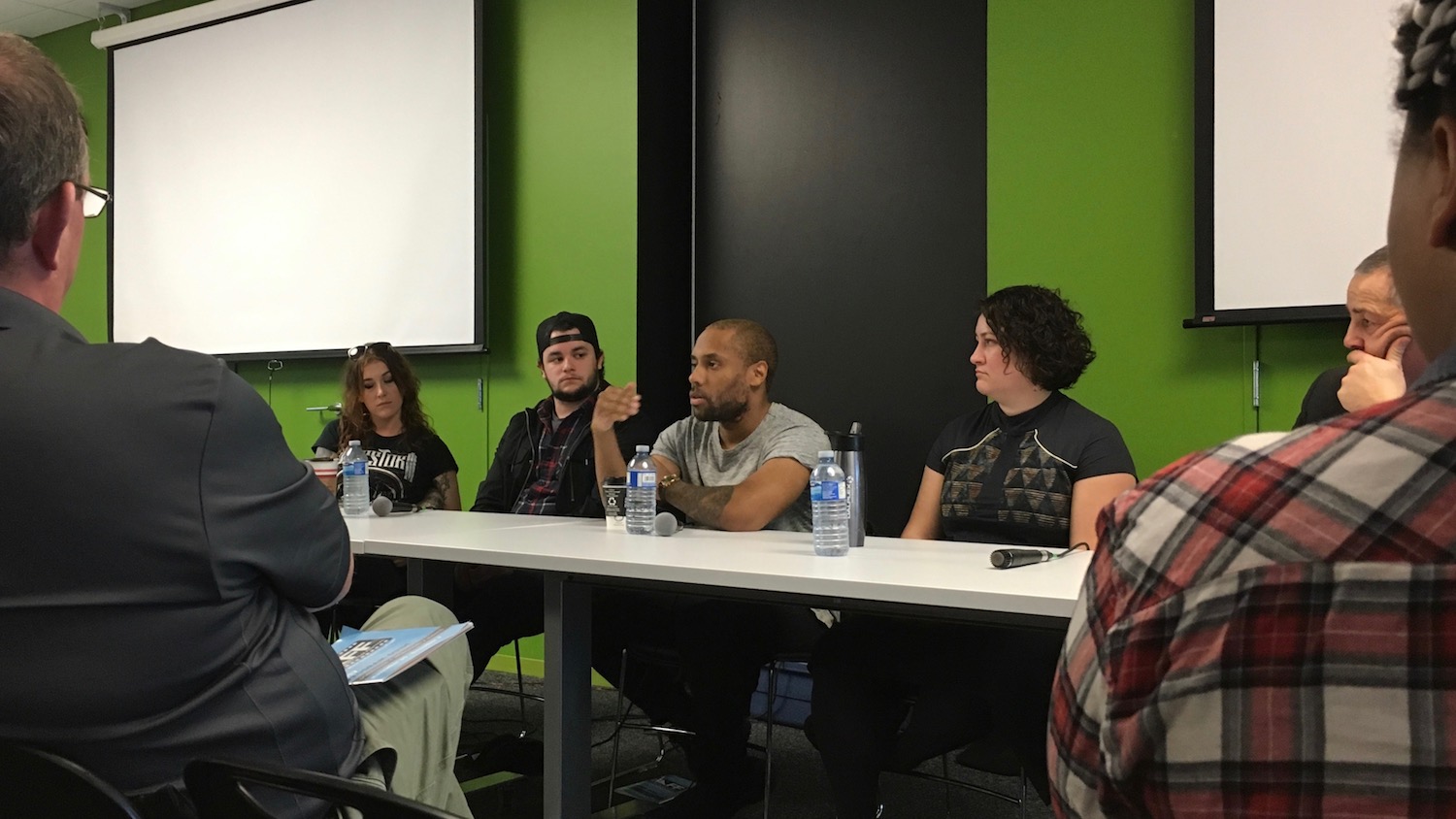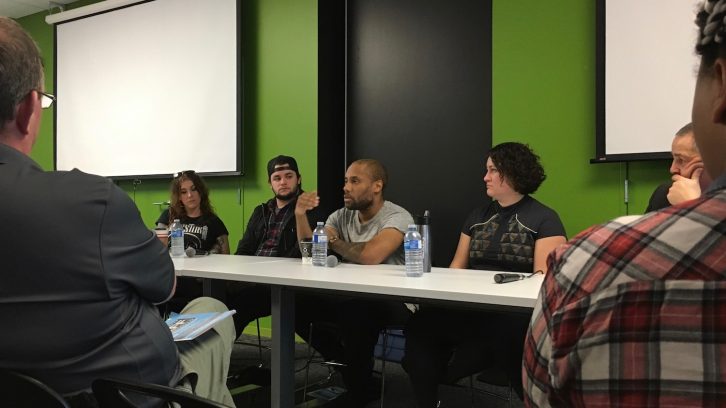Mental Health
‘Butt of the joke’: Panel discusses representations of mental health in film
Halifax Central Library hosted final BAFF 2017 event on Sunday

caption
Panelist, Tyler Simmonds discusses the short film he made about his own depression.
caption
Panelist Tyler Simmonds discusses the short film he made about his own depression.Tova Sherman thinks movies often stereotype people with mental illness.
“Usually in films, if they’re not evil, they’re funny,” Sherman, founder of the Bluenose-Ability Film Festival said on Sunday. “So we’re the butt of the joke; no matter which way, it’s always a negative stereotype.”
BAFF is Atlantic Canada’s first and only disability film festival. Sherman began a panel discussion, held at the Halifax Central Library, by talking about the negative portrayal of mental illness in the media.
Panelist Chuck Ford, a lawyer who switched from representing larger institutions to representing people instead, said helping people who suffer from mental illness has given him a lot of insight. He agreed that the media’s portrayal of mental illness is sometimes flawed. Related stories
“It’s sensationalized in the sense that mental illness is part of a very interesting plot line. What I’ve witnessed in my career is that it’s not sexy and romanticized; it’s people struggling.”
Panelists Dillon Garland, Tyler Simmonds and Stephanie Young are all filmmakers who struggle with mental illness. They use film to showcase their experiences in a realistic light.
Clips from each of their works were played during the event. In In My Mind by Simmonds, he played the lead role and gave a first-person perspective of depression.
“It’s a bit emotional for me to watch,” Simmonds said after the video finished. “That was an actual day in my life.”
The trailer for Garland’s upcoming film, Free To Speak, was also played. His film focuses on a realistic portrayal of depression, something that he thinks Hollywood films lack.
“It seems that depression, anxiety, mental illness and all that stuff is this kind of hook to get you into the story, and then it’s just thrown away or resolved,” said Garland. “By episode three it’s gone.”
Young is currently working on multiple research projects that promote a better representation of mental illness. One project, funded by McGill University, is about taking the dominant stereotypical narrative of people with mental illness and turning it on its head.
To do this, she is giving those that have mental illness cameras, so they can tell their own stories through film. Young wants to “give the power back to the people who have these experiences.”
According to the Canadian Mental Health Association, in any given year, 1 in 5 Canadians will personally experience a mental health problem or illness. Many audience members also shared their own struggles during the panel discussion.
“I often call mental illness the final taboo,” said Sherman. “We’ve gotten used to the fact that someone might have a visual impairment. We’ve gotten used to the fact that someone might require a ramp. But, for some reason, we are still battling the reality that someone might just need a hand, a listening ear and a little less judgment.”

